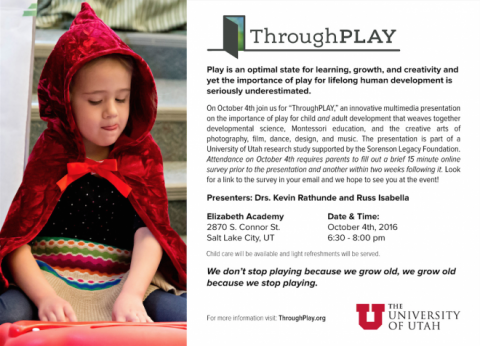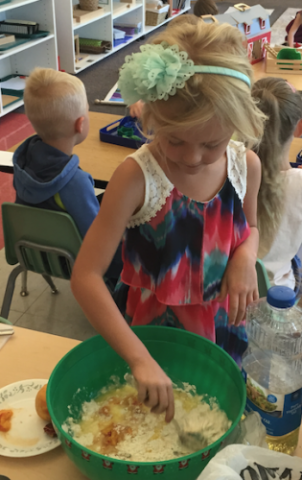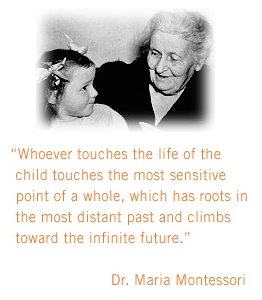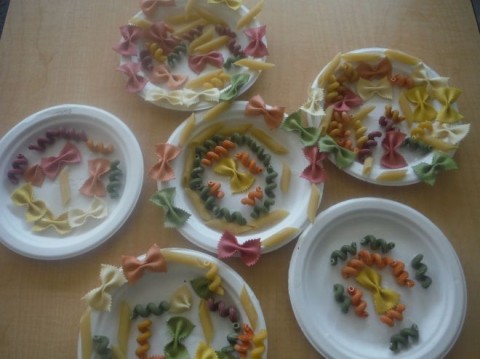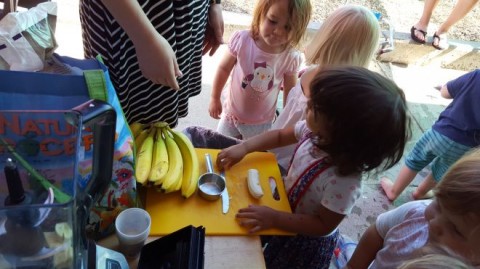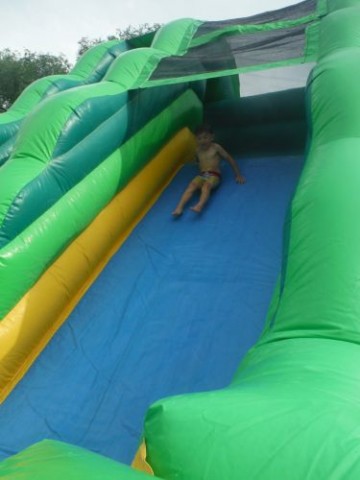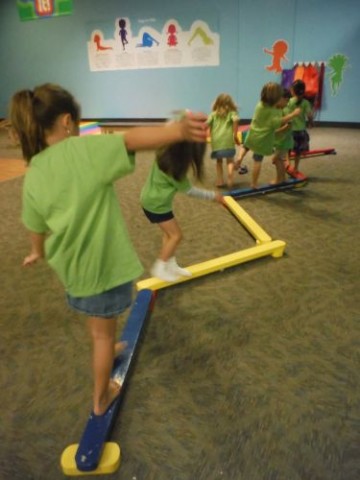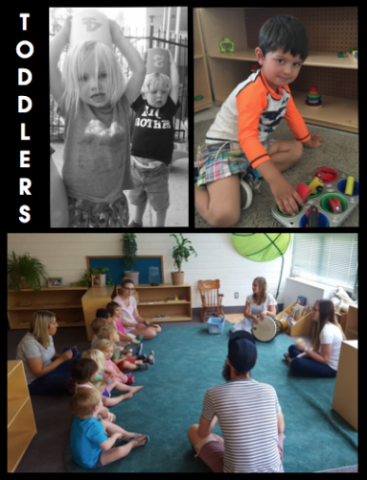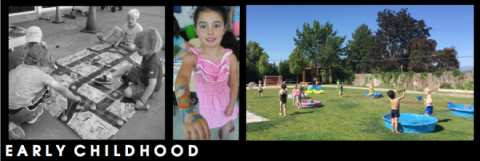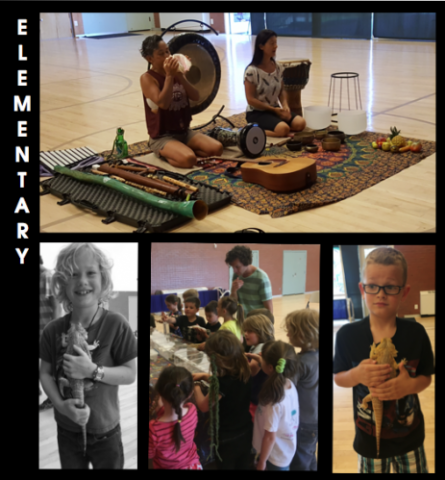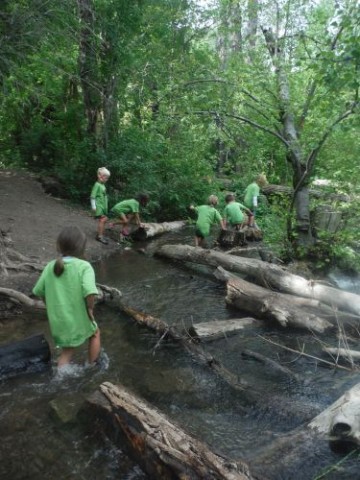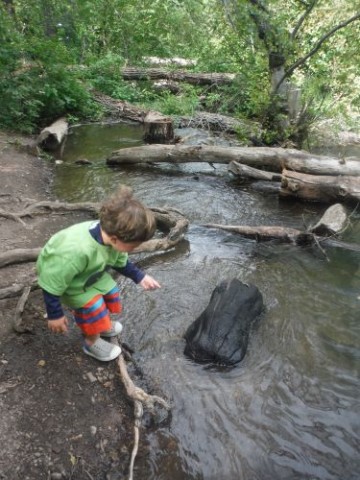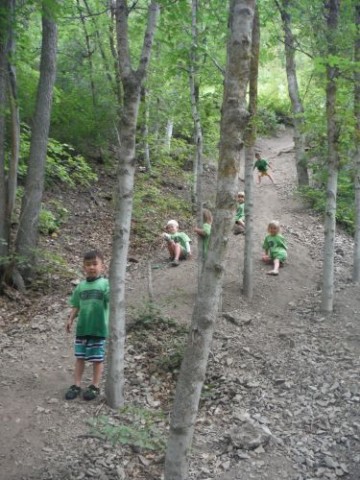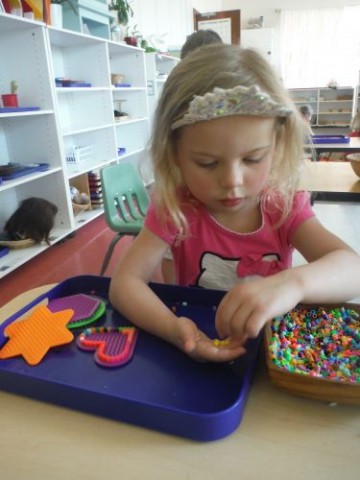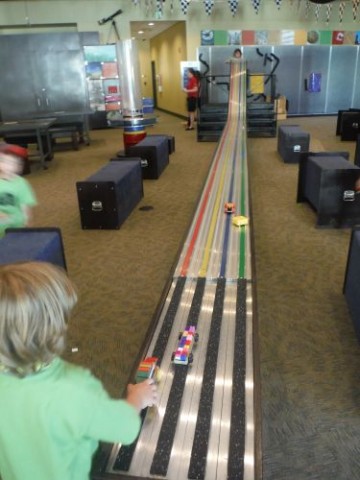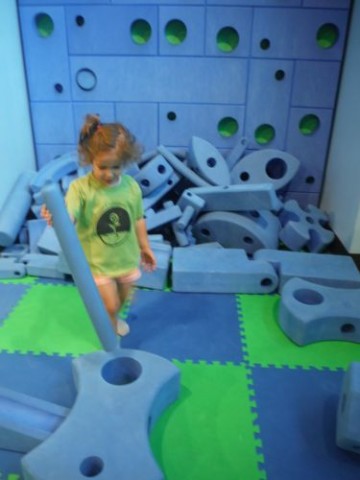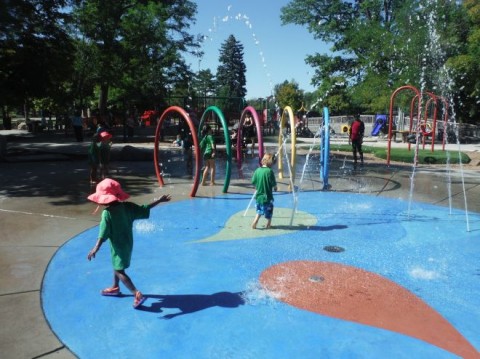Trevor Eissler
Montessori Madness
Montessori elementary classrooms are fundamentally different from traditional elementary school rooms. In fact, they are so different that it can be hard to understand how they work, and why they are so great at helping children thrive.
While it would be easy to write volumes about this topic (and some have: read Paula Polk Lillard’s book,Montessori Today, if you want a detailed description of the Montessori elementary classroom), here are five key differences, and how they matter to your child’s success.
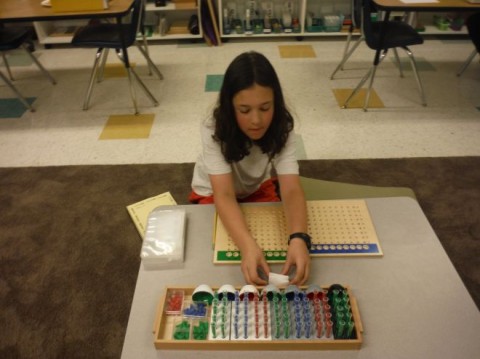
Teachers are guides, not lecturers. They individualize instruction to keep each child optimally challenged. In traditional elementary education, much instruction happens at an all-class level; students generally move through the same curriculum at the same pace. This is more true now then ever, as mandatory standardized testing forces teachers to ensure that all students meet common minimum standards. This approach by definition fails to optimally challenge most of the students, most of the time: a child who is advanced in a subject will be bored; one who is behind will quickly become anxious and concerned about his shortcomings. Montessori is different. Most instruction happens in small groups: teachers observe students and bring together children who are ready for a particular lesson. After a lesson, each child has time to practice a skill or further explore an area, either alone or with freely chosen partners. Writes Lillard: “Because the children are in a period when they have immense energy and curiosity, the secret to maintaining their interest is to keep them challenged.”In a Montessori classroom, an advanced student will be challenged to perform at his best: it’s not unusual for a 3rd grade Montessori student to tackle what would typically be considered 5th grade math, for example. At the same time, a child who struggles can get the extra support he needs, without suffering the negative effect on his self-esteem that comes from needing remedial work in a traditional elementary school setting.
Children have choices, there’s no one-size-fits all curriculum. Students are encouraged to be curious; they are engaged and love learning.When do you do your best work: when someone makes you do a task, or when you freely choose it? Autonomy is a huge factor in motivation, and Montessori elementary enables children to have a say in their learning. Of course, each child has to learn certain skills; mastering arithmetic isn’t optional. But instead of forcing each child to complete the same worksheet, the Montessori elementary classroom ensures repetition by offering a variety of materials for practicing a given skill: multiplication practice includes work with the Bead Chains, the Stamp Game, the Checkerboard, the Large Bead Frame, and the Flat Bead Frame. When we take our students on field trips, the people we encounter, from museum guides to park rangers, regularly comment that our students are the most curious and engaged group of children they have seen. This is a common refrain for Montessori elementary schools: the children love learning, because they have a chance to be actively engaged in the process.
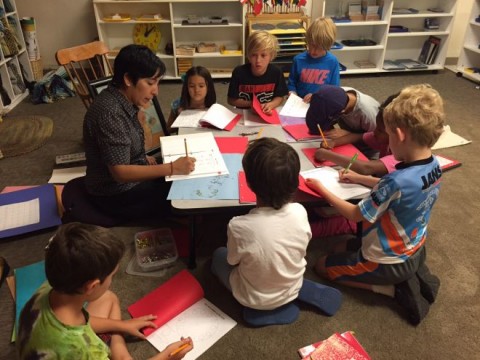
The classroom is full of materials instead of textbooks and worksheets. Children learn to solve problems and think, instead of repeat memorized jargon. Much traditional elementary school work is unfortunately focused on work with textbooks and worksheets. While there is nothing wrong with books (we love free reading time!), you will not find traditional textbooks and worksheets in the Montessori elementary class. Dr. Montessori viewed the early elementary years as a critical stage in the mind’s development, when the concrete thinking of the preschool years matures into abstract thinking. During the Primary years, children explored many materials, such as the Trinomial Cube or the Golden Beads, primarily for the sensorial interest. Now, in elementary, children use materials to understand how the world works. They are interested in the why and the how of things; they’ve become “reasoning explorers of the abstract”, in Lillard’s vivid description. The materials in Montessori are not mere instructional aids: Just like in Primary, much of their learning happens as the children use the materials to explore topics from grammar to division, from the fundamental needs of man, to the role of water in erosion. With the materials, learning is focused on the world; children acquire a mindset of thinking about things and figuring them out, rather than memorizing words or processes on an adult’s say-so.
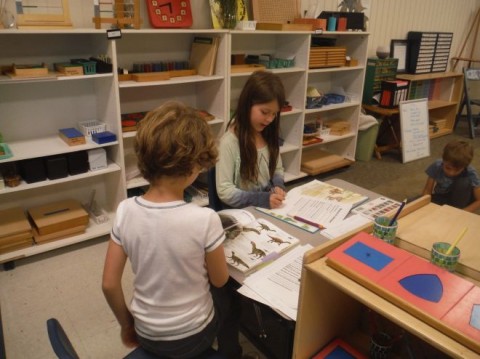
The day has two 2 – 3 hour work periods, instead of a schedule where activities are constantly changed. Protecting children from interruptions when productively engaged is key to their development of concentration and interest in their work. Dr. Montessori commented that traditional schools have broken up the day in many short time periods, in an attempt to hold the children’s interest, and that they have failed miserably, as children remain mentally fatigued despite the alleged benefit of variety. In contrast, writes Montessori, Montessori schools have proven that children need a cycle of work for which they are mentally prepared; such intelligent work with interest is not fatiguing and they should not be cut off from it by a call to play. Interest is not immediately born, and if when it has been created, the work is withdrawn, it is like depriving a whetted appetite of the food that will satisfy it.
This is why there is no morning recess in your child’s class, and why we don’t provide you with an hour-by-hour schedule. It’s one of the often-overlooked benefits for Montessori elementary students: author Paula Polk Lillard notes upon observing in a Montessori elementary class that the children “have time to think. That is what impresses me most, I realize. These children are thinking.”
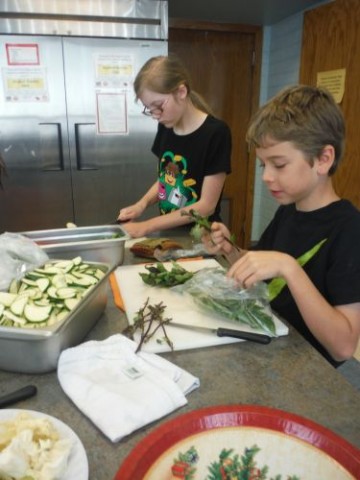
Children learn with and from each other, in a mixed-age environment. Instead of competing with each other, they grow into a community, and practice all-important social skills every day. In traditional education, the emphasis in preschool is on “socializing” the child, and children are expected to do much together in groups. Come elementary schools, class time is largely focused on individual work, in strictly same-age classrooms, and social interactions are limited to recess and lunch.This approach—focus on group activities in preschool, and individual activities in elementary school—is fundamentally wrong, according to Montessori. Young children in preschool, left to their own devices, often choose to do things by themselves, and much activity in a Montessori Primary class is in fact individual work. As children near the end of Primary, they often start to work together in pairs. In fact, becoming interested in and able to work with a peer is one indication that a child is ready to move up to elementary!In Montessori elementary, children interact with each other, across age groups, all day. You’ll often see 2-4 children working together on projects, negotiating roles and learning social skills in a safe, supervised setting as they choose co-workers and figure out that they can work with a range of companions, not just with their closest friends.
A Montessori elementary classroom is very different from traditional schooling. These five highlights are just a start to understanding this unique learning environment. We encourage you to explore more: Read up on how we teach each of the subjects on our web site. Pick up Paula Polk Lillard’s book. And, most importantly, make time to observe in your child’s Montessori elementary classroom!
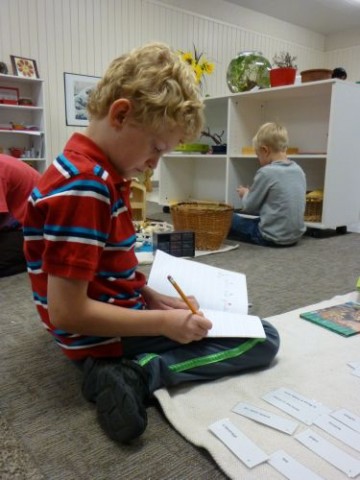
Larson, Heike. “Five Differences That Enable Montessori Elementary Students to Thrive.” Web log post. Http://www.leportschools.com. N.p., 18 Sept. 2012. Web. 09 Aug. 2016.
